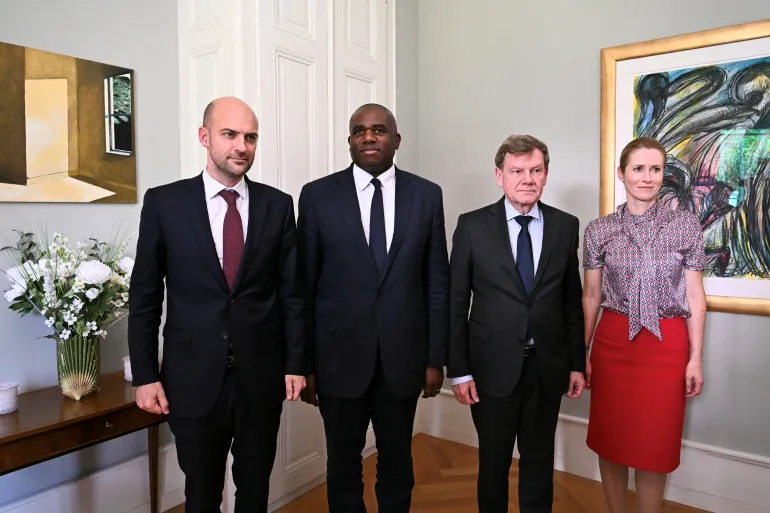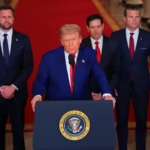The three largest European nations by population, Germany, France and the UK, held talks with Iranian Foreign Minister Abbas Araghchi in Geneva, Switzerland, on Friday, in an effort to avert a protracted war in the Middle East.
US President Donald Trump, who has said he will decide within two weeks whether to join the assault on Tehran, denounced the talks with European leaders as a failure.
“Iran doesn’t want to speak to Europe. They want to speak to us. Europe is not going to be able to help in this one,” he told reporters.
Araghchi had said Iran was not attending the talks in Geneva to negotiate anyway, only to listen.
However, he added, “There is no room for negotiations with the US [either] until the Israeli aggression stops,” as Iran and Israel traded salvoes of missiles and drones.
The US has been Israel’s chief ally and supporter in all its wars, and is the only country with major military assets deployed in the region, which might be able to alter the course of the war.
Why are the Europeans getting involved?
Germany, France and the UK – referred to as the E3 in the context of Iran talks – helped negotiate a 2015 treaty with Iran.
The 2015 treaty, the Joint Comprehensive Plan of Action (JCPOA), saw Iran agree to develop only peaceful nuclear programmes and to submit to independent monitoring. Russia, China and the United States also helped negotiate it, as did the UN.
But Trump withdrew the US from the JCPOA in May 2018, during his first term as president. The E3 tried to keep the treaty alive but failed. Iran abandoned it a year after the US did.
On Saturday, the EU high commissioner for external action, Kaja Kallas, who also attended the talks on Friday, issued a statement reaffirming “commitment to Israel’s security” and “longstanding concerns about Iran’s expansion of its nuclear programme, which has no credible civilian purpose, in violation of almost all the Joint Comprehensive Plan of Action (JCPOA) provisions”.
But Israel’s war in Gaza has divided the E3 over their approach to Israel, weakening European foreign policy unity further, although all want to avoid another war on Europe’s doorstep.
The E3 positions on Israel have diverged since Israel’s war in Gaza began in October 2023.
Germany has remained the most ardently pro-Israel, refusing to criticise Israel for indiscriminate bombing of civilians in Gaza and halting its funding to UNWRA, the UN agency assisting Palestinian refugees, which Israel accuses of aiding Hamas.
Originally pro-Israel, the UK somewhat changed its stance after Labour’s election victory last year. Earlier this month, the UK joined four other countries in formally sanctioning Israel’s far-right national security minister, Itamar Ben-Gvir, and Finance Minister Bezalel Smotrich, for “incitement of violence” against Palestinians in the occupied West Bank and Gaza. Israel called the decision “outrageous” and “unacceptable”.
France is even more sceptical towards Israel. It was one of four EU members that started calling for a Gaza ceasefire in April last year. A year later, on April 9, French President Emmanuel Macron said he would formally recognise the state of Palestine within months, partly because “at some point, it will be right”, and partly to encourage Arab states to recognise Israel. France was reported to be lobbying other European nations to follow suit. Spain, Norway and Ireland all formally recognised Palestine the following month.











